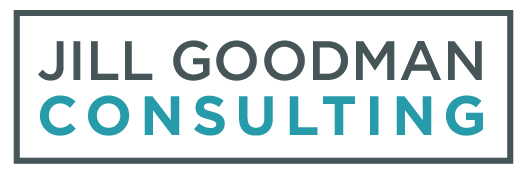How Can We Make This Right?
It was chaotic in the Emerald Aisle at the Fort Lauderdale airport. I found myself in a mad dash for a car or as mad as one can be while dragging rolling luggage, a laptop bag, and a now-out-of-season down-filled jacket. By the time I surveyed the options, the pickings were slim. The pickup trucks were just not me, leaving me with a Toyota Highlander. It was too big for what I needed, but I had school leaders to visit, and time was a-wasting. I hoisted the bags into the back seat and headed to my first meeting.
During my week with the Highlander, I realized the back hatch didn't work. I wrestled with it and threw my weight into raising the hatch that refused to lift with its automatic mechanism. I cursed at it and finally gave up, using the back seats to store luggage and apologizing to my guests.
Upon return of the vehicle, I mentioned the issue to the attendant so that they could repair it or take it out of inventory. I didn't want the next driver to have to deal with that. The attendant immediately said, "How can we make this right?" I admit I was surprised by this. I didn't expect anything in return for alerting them to a problem. Still, it was a delight to be heard, validated, and offered compensation for my inconvenience.
At that moment, I made the mental leap to enrollment management. We can learn from tangential industries if we are open to the possibilities. But, can we really compare a school to a car rental company? No, we cannot. That would insult teachers, staff, and students. A comparison like that could not possibly take into consideration the millions of details and nuances that go into educating a child within a specific mission and philosophy. However, independent school parents are paying a lot of money based on a brand promise they hope your school can fulfill. When things don't go quite right, they want to know why and what will be done about it. They expect customer service similar to what they find in the world of car rental companies and the like.
In the five years I have been working with school leaders on enrollment retention, the number of schools I speak with that now have a formal retention strategy is approximately 50%. A retention committee or any other system of managing attrition was nearly unheard of five years ago. Through my conversations with two specific leaders, I am wondering if the retention committee, while helpful, is too late? Schools need a proactive, front-line approach to retention. Here are two examples:
Example 1. Hilary Arenstein is the Director of Enrollment Management at Donna Klein Jewish Academy in Boca Raton, Florida. Faced with a pandemic boom resulting in a 25% increase in student population, she needed another approach to helping families feel part of the community and secure in their decisions to relocate to the area and choose the school. So, she added another title to her role: Concierge Officer. Ms. Arenstein gives her cell phone number to every parent. Parents call or text her with small issues, like their child forgetting a snack, to bigger things, like an issue with a teacher or class placement. They ask her for a list of pediatricians or other recommendations parents need help finding when they move to a new area. Ms. Arenstein takes the pressure off teachers, triages the calls, and allays the fear and anxiety of parents.
Example 2. Maureen Smith is the Director of Admission and Financial Aid at Marvelwood School in Kent, Connecticut. In our conversation at a conference in Miami, she told me her school has extremely low attrition and has for the last six years or so. I asked what she attributes to that success. Ms. Smith told me that the school created a new position six years ago: Dean of Parents. They recognized a gap in their communications and prioritization of parents, an essential part of the educational process at Marvelwood. Ms. Smith said that too many small and large issues that arose for parents didn't neatly fit into one of their contact categories, and parents were bouncing around the school trying to find someone to help with their concerns. The Dean of Parents is the first call for parents, and the Dean will listen, assess the situation, and decide the best course of action and who to involve for a resolution.
I understand that you can't always make it right for a parent. One very insightful Head of School told me that he no longer refers to parents as "partners." That term, he told me, is misleading for parents. It implies that they have agency over the educational decisions made by the Head of School for their child, when in fact, they do not. He prefers the term "collaborator." His goal is to collaborate with parents, to work together to help students see that the two most important groups of adults in their life, parents and teachers, are aligned in the student's best interest.
You can continue to do business the way you always have and try to keep parents in their own lane or even on their own highway. But, with generational shifts and changing zeitgeist in consumerism, communicating and delivering on your school's value proposition is high stakes. The margin for error is slimmer and slimmer. Schools cannot afford to lose students. The schools that are dedicating people, time, and resources to helping parents see the value of their decision to choose your school are the ones that are best positioned for success moving forward.
The author, Jill Goodman, is a consultant working with independent school leaders to advance their school's mission, enhance their processes, and bolster their skills. Learn more about all services here.


